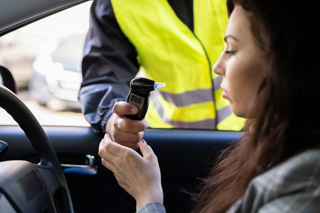Fleets should introduce robust drug and drink driving policies and educate their drivers before considering putting a testing regime in place, a drug and alcohol testing company has warned.
Not only will a structured approach reap rewards, but it will also avoid companies falling foul of employment law, DTec International warned.
The caution follows Government proposals on drug-driving legislation. Motorists suspected of driving under the influence of an illegal or prescribed drug will face up to three roadside, saliva-based drug tests from 2014.
If a positive reading is returned, they will then be given a blood test to determine the level and type of drug present.
The road safety charity Brake advocates that employers test for the presence of drugs and alcohol in drivers’ systems as long as permission for them to do so is written into employees’ contracts.
However, Ean Lewin, managing director of DTec International, told Fleet News it is essential companies don’t rush straight into screening.
“We can be working with some companies for years before they implement a full testing regime, because it’s important to get the right processes and protocols for them,” he said.
Education is key
He advised companies to first focus on policy and educating employees before starting to screen drivers.
“Education is key because the majority of people won’t be taking drugs and it’s important they recognise this is about their employer making the workplace safer for them,” he said.
A recent study showed that 74% of drug users in the UK were in full-time employment.
“It would therefore be pretty naive for a company to think they’re not going to be affected by the legislation,” said Gareth Salisbury, UK and Ireland sales manager at the drug testing company.
As an extreme example, DTec said one in four drivers within a sample group of one company it tested returned a positive test. Two weeks later, another group of drivers were put forward by the same company to be tested. Again, it recorded a 25% failure rate.
However, Salisbury said that, on average, DTec would expect positive samples from 5% of employees tested, which still equates to one in 20 drivers potentially falling foul of the law.
DTec recommends that a company policy should set out the preferred approach to dealing with drink and drug-related problems.
The policy should promote a safe working environment for all staff and include guidelines on acceptable/unacceptable use, limits and procedures, and what is expected of employees.
A support mechanism should also be provided for those seeking help or advice.
Employers cannot simply demand that their employees submit to random testing for alcohol or drugs.
Testing without consent may be considered a criminal assault and could result in the employee resigning and claiming constructive dismissal.
There are also issues of data protection associated with alcohol and drug testing, although the random testing of employees is not a breach of the Human Rights Act.
“Employers need to be sure that the written contract of employment or other company policy documents clearly state that the testing of drugs or alcohol may occur,” said Lewin.
If non-random testing may be carried out, on a ‘for cause’ basis, this should be made clear in the company’s policy.
How the testing is carried out can also help employees to accept it. For example, DTec can train staff to do the screening tests using its saliva-based kit.
However, if they then return a positive sample, a confirmation sample should be urine-based and carried out by an independent third party in a laboratory.
“It’s not for everybody, but we’ve got an awful lot of blue chip companies who think it is,” he said.
“By taking a proactive approach, they will go a long way to protecting themselves against the dangers of drug- and drink- driving.”























Roz Cumming, Brake - 05/09/2013 13:38
Brake absolutely subscribes to the view that education is key. We recommend the use of testing, yes, but only after a clear policy on this has been developed, in consultation with employees, alongside education and clear communication about the risks of taking drugs or drinking and driving. Once such a policy is written, and staff contracts clearly reflect this policy, then testing can and should be used, to monitor compliance with the policy. If people really understand the possible and horrendous consequences of taking these risks, they'll also understand the need for companies to take a proactive approach to managing them.